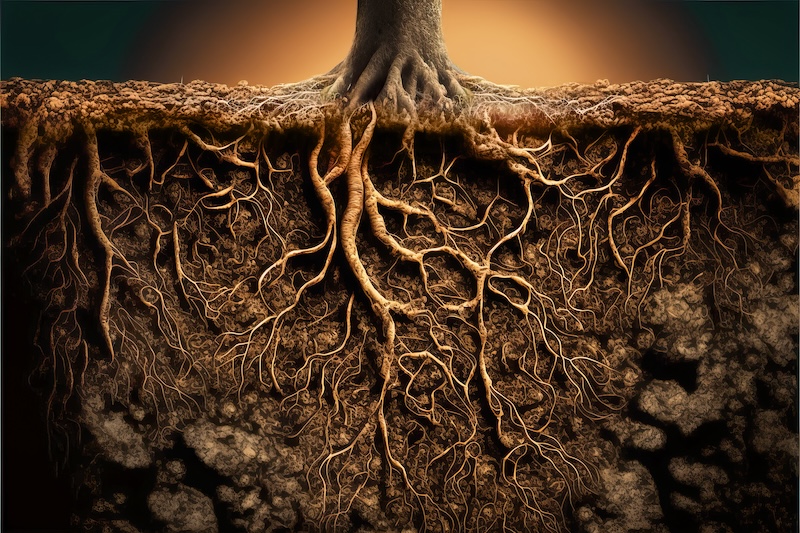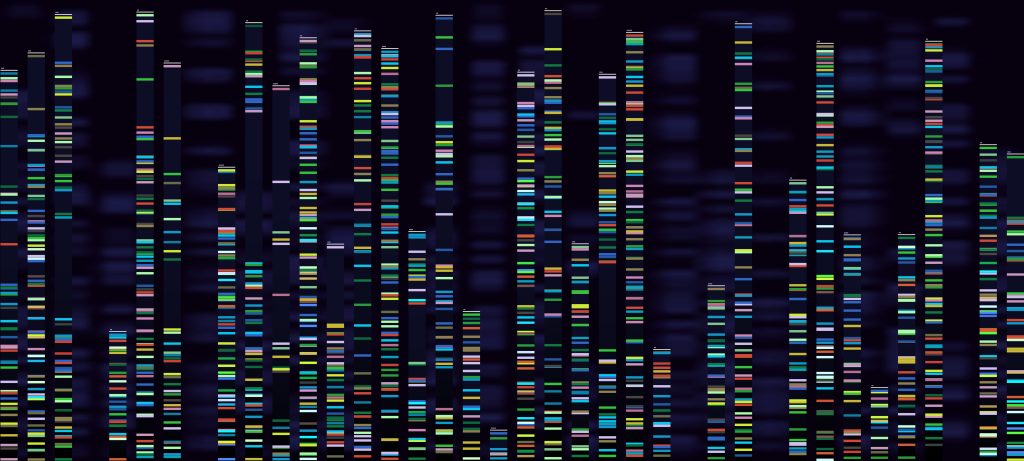A Genealogist’s Guide to Tracing African American Ancestors
Exploring African American genealogy research can lead you on a remarkable journey of self-discovery, unearthing stories of resilience, endurance, and cultural diversity. This genealogist’s guide covers the essential resources to trace African American families’ history, offering insights into African American or Black history and the importance of African American genealogical societies and shedding light on African American historians’ invaluable contributions.
The intricate history of Black Americans, intertwined with the legacy of the Civil War and the African slave trade, can be challenging to trace. Often incomplete or scattered, historical records present ‘brick walls’ that genealogy researchers may need help to overcome. However, the National Archives and other online databases provide several resources for those keen on tracing their African American ancestry.
Expanding Different Types of Records is Essential Resources for African American Genealogy

1.Vital Documents: Vital documents are foundational resources in African American genealogical research, as they provide essential information about an individual’s life and family connections. Birth certificates, death certificates, and marriage records are critical evidence to help researchers establish vital details like names, dates, and locations. Birth certificates provide information about a person’s birth, including their full name, date of birth, and parent’s names. Death records offer valuable insights into a person’s passing, providing their full name, date of death, and sometimes the cause of death. On the other hand, marriage records reveal the union of two individuals, offering their names, marriage dates, and often the names of their parents or witnesses. These vital documents are the bedrock for tracing family lineages and creating a comprehensive family tree. They can be accessed through various sources, including local government offices, archives, and online databases specializing in vital records.
2. U.S. Census Records: National census records are invaluable resources for African American genealogical research, especially considering the challenges of tracing pre-Civil War ancestors. Starting from the 1870 U.S. Census, African Americans were officially listed by name, providing a significant breakthrough in genealogical research. These census records offer a unique window into the lives of African American families, revealing demographic trends, migration patterns, and familial relationships. By carefully analyzing each census entry, researchers can track family composition changes, age, and even racial classifications over time. Comparing census records from different years can shed light on family movements, helping researchers identify migration patterns and potential relatives living nearby. Census records can be accessed through various online platforms like HeritageQuest Online, Ancestry.com, Archives, and FamilySearch.org, making them easily accessible to researchers and the use of historical governmental records.
3. Newspapers: African American newspapers are valuable chronicles of everyday life and significant events within African American communities. These newspapers offer a socio-cultural backdrop for genealogical research, providing helpful information about the lives of ancestors and the communities they were a part of. Even after Emancipation, newspapers often included African Americans in various news stories, ranging from local events to more notable achievements. Researchers can find mentions of their ancestors in newspapers, including their names, occupations, community involvements, and relationships with former slaveholders. Some newspapers might even list the names of former enslavers, offering crucial leads for tracing ancestral connections. Newspapers can be accessed through digitized collections available on subscription websites or through local and state libraries and archives on microfilm.
4. Historical Print Media: Publications by African American presses play a crucial role in capturing the essence of everyday life and recording significant milestones within African American communities. These periodicals offer a unique socio-cultural context that can significantly enhance genealogical investigations. Newspapers and magazines published by African American presses provide valuable insights into community events, social issues, achievements, and obituaries that may contain vital information about ancestors’ lives. By exploring historical print media, researchers can gain a deeper understanding of their family’s history and the broader context in which their ancestors lived.
5. Military Records: Military records are invaluable for tracing African Americans’ service and experiences in the U.S. Military. These records provide insights into their contributions, sacrifices, and roles in various conflicts throughout American history. Military records include draft cards, enlistment records, rolls, service records, union army records, pension applications, casualty lists, and reports. The records span from the Revolutionary War to World War II and encompass segregated all-African American military units, such as the Ninth and Tenth U.S. Cavalries, the Twenty-Fourth and Twenty-Fifth Regiments, the 92nd Division, the 93rd Division, the 555th Parachute Infantry Battalion (also known as the “Triple Nickles”), and the 332nd Expeditionary Operations Group, famously known as the “Tuskegee Airmen.” Researchers can access these records through databases like Fold3 and Ancestry Library Edition, which offer historical primary documents and genealogical resources. Furthermore, the National Archives and Records Administration (NARA) is actively working on a reference information paper (RIP) that aims to provide a comprehensive finding aid for military records relating to African Americans, spanning from the post-World War I period to the end of the Korean conflict. These military records can shed light on the lives and contributions of African American soldiers who served their country with bravery and dedication.
6. Archives of the Freedmen’s Bureau: The Freedmen’s Bureau, established after the Civil War, holds many records about newly emancipated African Americans. These records encompass a diverse range of information, including marriages, military records, complaints, and requests for assistance. Indexed by name, the Freedmen’s Bank records provide additional details such as place of birth, age, names of plantations, and family connections. The Bureau’s records serve as invaluable resources for African American genealogical research, offering critical insights into the lives of formerly enslaved people.
7. Records of Slave Owners and Slave Narratives: Delving into the records left behind by enslavers can offer valuable clues and insights into the lives of enslaved individuals. Plantation records, wills, and other documents may mention the names and details of enslaved individuals, helping researchers identify family connections and movements. Additionally, studying slave narratives collected during the Federal Writers’ Project of the Works Progress Administration can provide a poignant and intimate glimpse into the experiences of those who endured slavery. These narratives often include details about daily life, family relationships, and interactions with slave owners.
8. Church Records: Church documents, such as baptismal, marriage, and burial records, can be critical in tracing African American ancestral roots. Churches often meticulously recorded these events, offering valuable details about family relationships and connections. Researchers can find names, dates, and locations of baptisms, marriages, and burials, which can help build a comprehensive family tree and shed light on family history. These church records may be accessible through church archives, local libraries, or online databases.
9. Oral Histories and Interviews: Engaging in dialogues with elderly family members and preserving their oral histories can add a unique and personal dimension to African American genealogical research. These conversations can provide invaluable family stories, anecdotes, and cultural traditions that might not be found in written records. Oral histories allow researchers to understand better their family’s experiences, customs, and values, making the research more meaningful and connected to personal identity.
Harnessing Literature to Decode Your Roots
Publications such as “Black Roots: A Beginner’s Guide to Tracing the African American Family Tree” and the influential piece “Roots” by Alex Haley provide both practical guidance and profound insights. For those starting on their genealogical research journey, these sources offer a way to navigate the complex world of research methodologies, learn to overcome investigative hurdles and deepen your understanding of the experiences that shaped your ancestors’ lives.
methodologies, learn to overcome investigative hurdles and deepen your understanding of the experiences that shaped your ancestors’ lives.
The Vital Role of Genealogical Associations
Organizations such as the Afro-American Historical and Genealogical Society serve as catalysts in promoting the study of African American genealogy. They foster a vibrant community of enthusiasts and provide platforms for intellectual growth. These societies organize annual gatherings that allow for interaction, promote knowledge exchange, and provide opportunities to learn from subject matter experts.
The Indelible Impact of African American Historians
Eminent African American historians, like Carter G. Woodson and Alex Haley, have left an indelible imprint on the field of genealogy by illuminating the intricate narratives of African American history. Their groundbreaking work provides crucial insights into the broader historical context that underpins African heritage.
The Advent of the Digital Age: An Ally for African American Genealogy
In the modern age, genealogical software and comprehensive online databases offer innovative tools to manage and streamline research. Digital collections maintained by esteemed institutions such as the Library of Congress and the National Archives have proven beneficial for tracing African American genealogy.
DNA Testing: African American Genetics is Key to Your Ancestry

The advent of DNA testing has brought about a revolution in genealogical research. Companies such as AncestryDNA and 23andMe offer advanced services that reveal your genetic lineage. They assist in tracing your African origins and help in the identification of distant relatives.
Researching African American Genealogy requires a different approach due to the unique historical context of slavery and its aftermath. Enslaved people were considered property, which meant they were denied access to education, legal marriage, land ownership, and other activities that generated records used in genealogical research. This has made tracing African American lineage more challenging than different ethnic backgrounds.
To begin your journey, start with yourself and work backward, documenting personal information like where and when you were born and any relevant marriage information. Obtain documents such as birth and marriage certificates to provide information about your parents and their birthplaces.
Gathering oral histories and family records is another valuable method. Writing your autobiography and interviewing older family members can provide valuable insights into life experiences and memories of our African-American ancestors.
For records after 1870, various sources can be explored, including cemeteries, funeral homes, birth and death certifications, marriage and divorce records, obituaries, published biographies, U.S. census records, and more. It’s essential to remember that African American genealogy research before 1868 can be more challenging but possible.
Various online resources and databases, such as the National Archives and Records Administration, provide guides and records specific to African American genealogy records.
Researching African American genealogy is a rewarding and captivating journey into personal history. By utilizing essential resources, engaging with genealogical associations, and harnessing the power of DNA testing and digital tools, you can unveil the rich tapestry of your family’s history and pay homage to your ancestors enduring spirit and contributions to American history.

